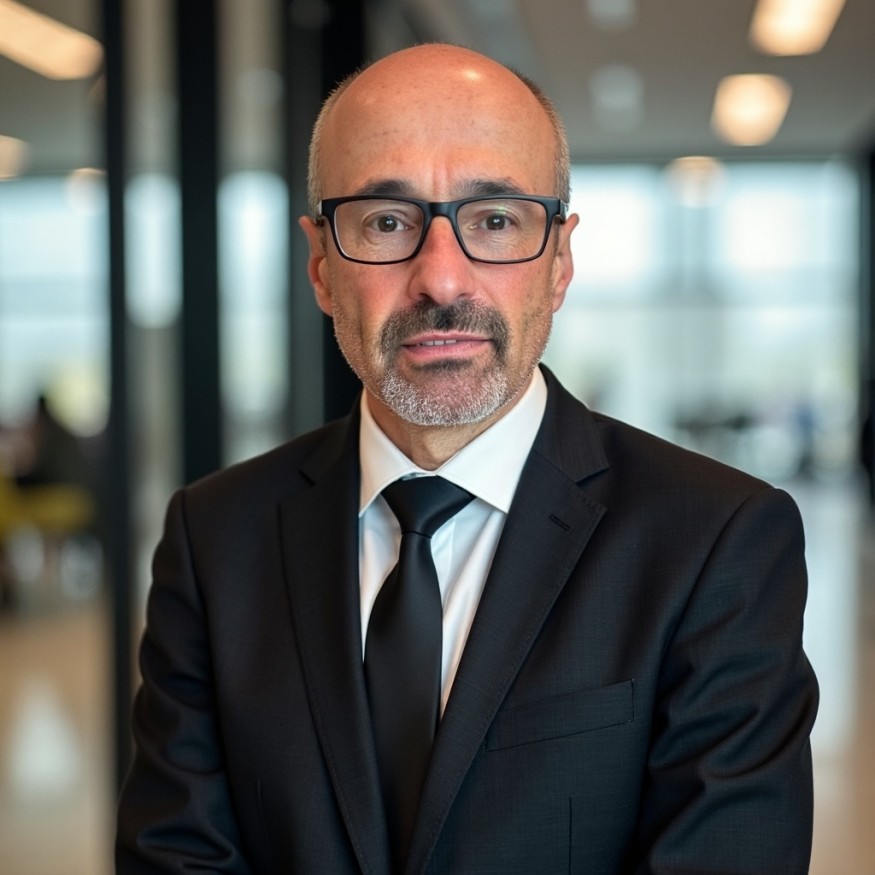The Unexpected Path: A Soviet Refugee's Rise in Criminal Defense

LOS ANGELES — In a downtown law office overlooking the city courthouse, Dmitry Gorin reviews case files for an upcoming federal fraud trial. Recently named to the Los Angeles Daily Journal's 2025 list of California's top white-collar criminal defense attorneys, Gorin represents one point in a larger pattern: former prosecutors who have become sought-after defense specialists.
What distinguishes his particular story is its beginning. In 1979, Gorin arrived in Los Angeles as a 9-year-old refugee from the Soviet Union, speaking virtually no English.
"The legal profession wasn't on my radar then," he acknowledges during a brief conversation between client meetings. "I was just trying to figure out American playground rules."
The Los Angeles that greeted young Gorin was a city in transition—expanding, diversifying, and experiencing the economic and cultural shifts that would accelerate in the decades to come. For a family that had left behind most possessions due to Soviet emigration restrictions, adaptation was imperative.
While attending Fairfax High School in West Hollywood, Gorin participated in a mock trial program: an extracurricular activity that would unexpectedly shape his career trajectory. What began as a way to practice English and public speaking revealed an aptitude for structured argument. Playing the role of prosecutor in the simulated courtroom, he discovered a framework where rules and evidence mattered more than cultural background.
His academic path progressed through UCLA, where he earned an economics degree in 1992, graduating magna cum laude with Phi Beta Kappa honors. The analytical rigor of economics (understanding systems, tracking flows of value, interpreting data) would later prove relevant to white-collar criminal defense, where financial evidence often features prominently.
After completing law school at UCLA in 1995, Gorin made a choice common among attorneys seeking trial experience: he joined the Los Angeles County District Attorney's Office. For over a decade, he prosecuted cases ranging from violent crimes to complex fraud, eventually rising to Senior Deputy District Attorney.
Criminal law practitioners often debate whether prosecution or defense experience better prepares an attorney. For Gorin, prosecution provided both technical training and institutional insight. Over approximately 100 jury trials, he learned how investigations unfold, how evidence is gathered and presented, and how prosecutorial discretion operates in practice.
"The prosecutor's perspective is valuable when you're defending cases," notes a veteran Los Angeles attorney who has opposed Gorin in court and requested anonymity to speak candidly about a colleague. "You understand which weaknesses in a case might actually matter to the government, versus which ones they'll work around."
In 2006, Gorin and attorney Alan Eisner established Eisner Gorin LLP, focusing exclusively on criminal defense. Both partners secured certification as Criminal Law Specialists from the California State Bar—a credential held by fewer than one percent of the state's attorneys.
The boutique firm's structure reflects certain priorities: senior partners maintain direct involvement in cases, working with investigators and forensic specialists rather than delegating extensively to associates. This approach allows the practice to handle matters spanning multiple jurisdictions while maintaining case-specific attention.
Gorin's practice has centered on financial crimes, including fraud, tax matters, and regulatory violations. Court records indicate several notable outcomes, including a mid-trial dismissal in a mortgage fraud case involving alleged eight-figure losses, which is an uncommon resolution in financial prosecutions, where cases typically reach jury deliberation.
In multi-jurisdictional matters, Gorin has coordinated defense across parallel federal and state investigations. His command of both technical evidence and procedural requirements has secured pre-trial release terms that allowed clients to maintain business operations during proceedings. Court filings characterize these outcomes as significant, given the government's initial detention requests.
Beyond litigation, Gorin has taught at Pepperdine University School of Law and UCLA for more than two decades. His courses on trial advocacy and pre-trial procedure draw from actual cases to emphasize practical skills. Former students now practice throughout California's criminal justice system.
Gorin has also contributed to legal reference materials, authoring chapters on grand jury procedure and search-and-seizure law in California practice guides. These publications provide ongoing guidance to attorneys navigating evidentiary standards and procedural requirements.
The Daily Journal recognition joins previous listings in peer-reviewed publications like Super Lawyers and The Best Lawyers in America. These designations reflect professional assessment rather than self-promotion, as they require nomination by colleagues familiar with an attorney's work.
As regulatory enforcement intensifies across financial sectors, the demand for specialized defense counsel continues to grow. Attorneys with both prosecutorial background and defense specialization represent a particular category within the white-collar bar: practitioners who understand how cases are built and how they might be challenged.
For Gorin, this career progression from prosecutor to defense specialist mirrors the paths of many prominent attorneys. What remains distinctive is the distance traveled (from Soviet refugee to legal practitioner) and the perspective this journey might provide on American legal institutions.
When asked what his childhood self would make of his current practice, Gorin pauses briefly. "He probably wouldn't believe it," he says, before turning back to his case files, the conversation clearly over. There are motions to prepare, and the court deadline approaches.
Subscribe to Latin Post!
Sign up for our free newsletter for the Latest coverage!















